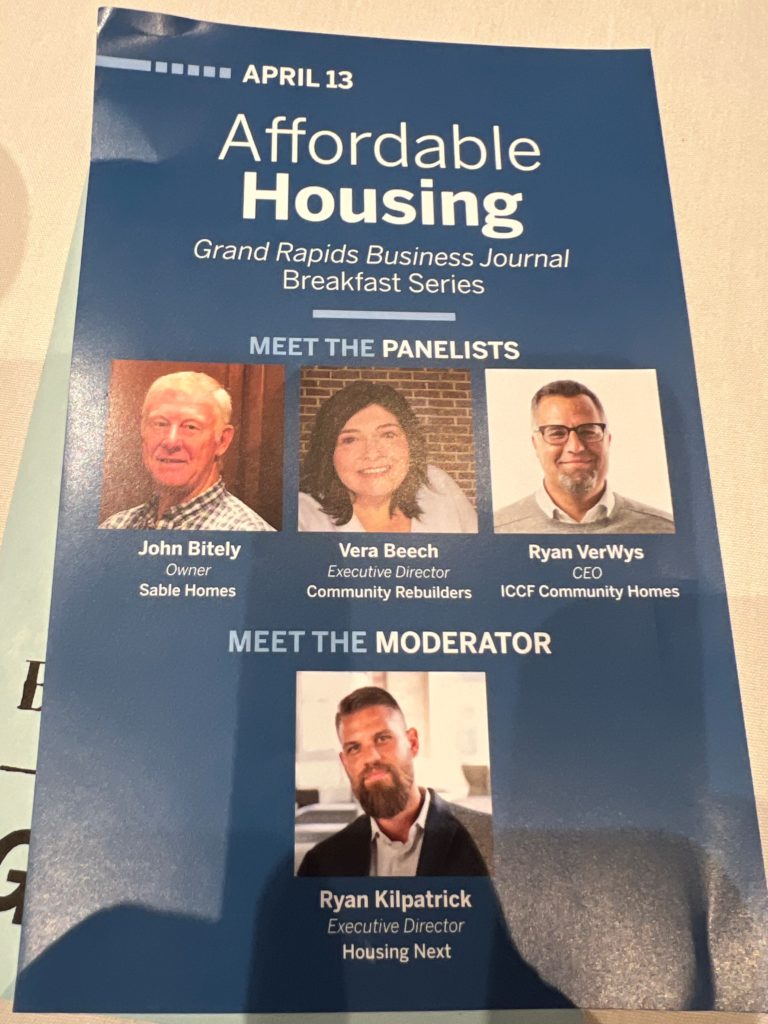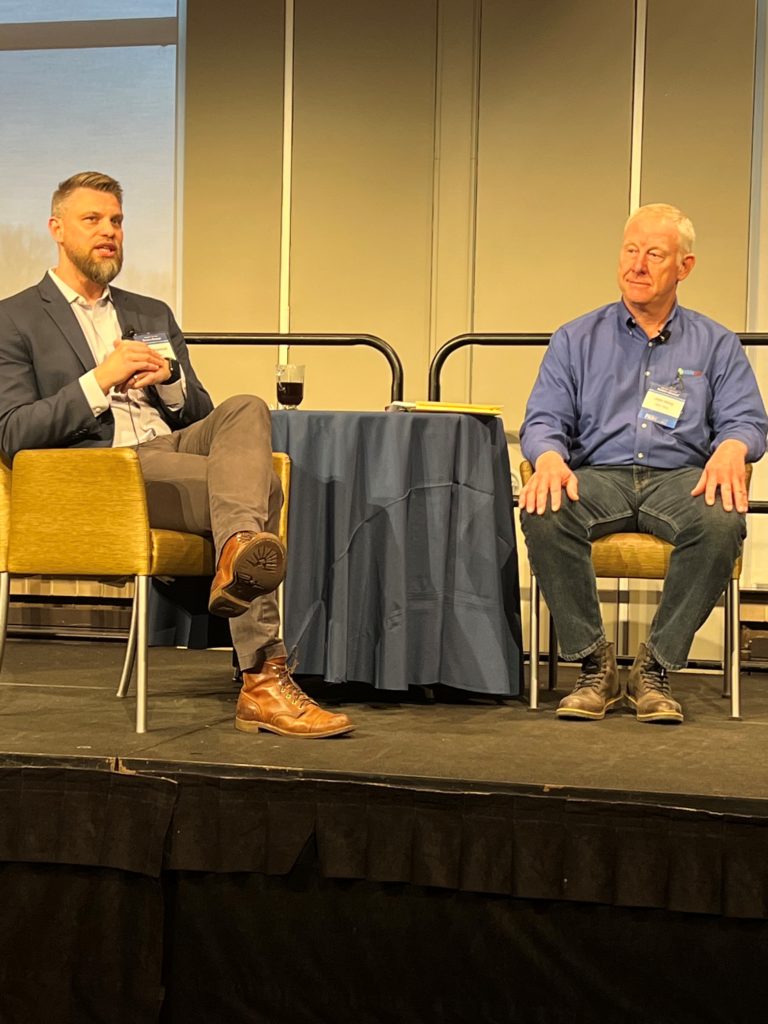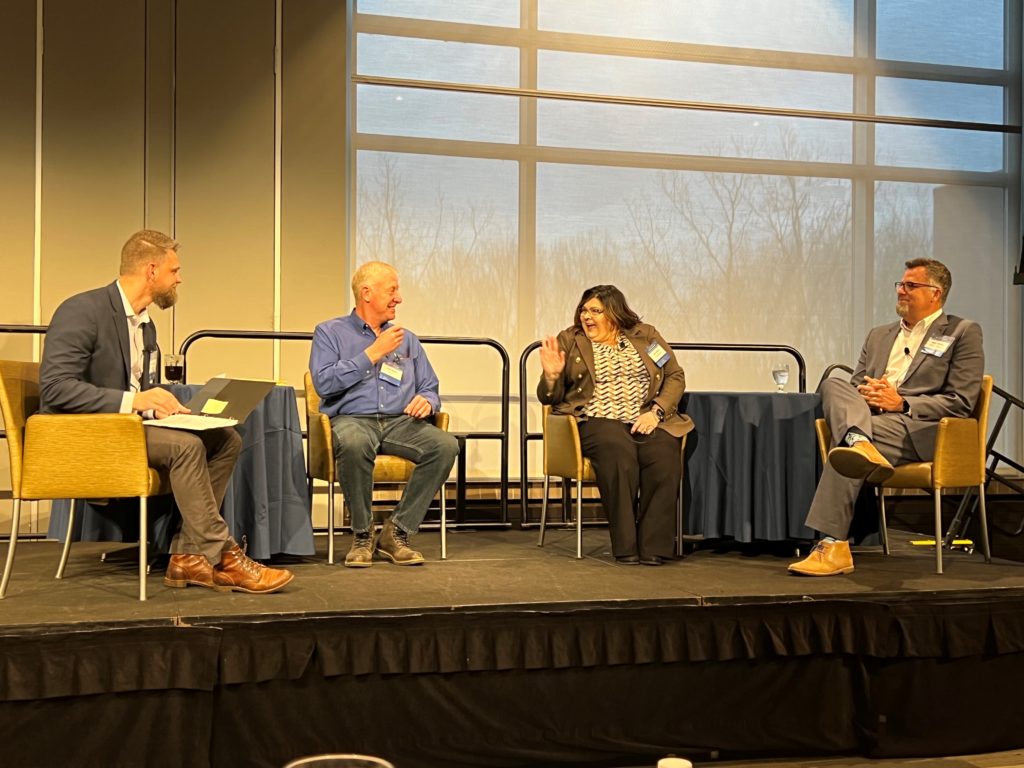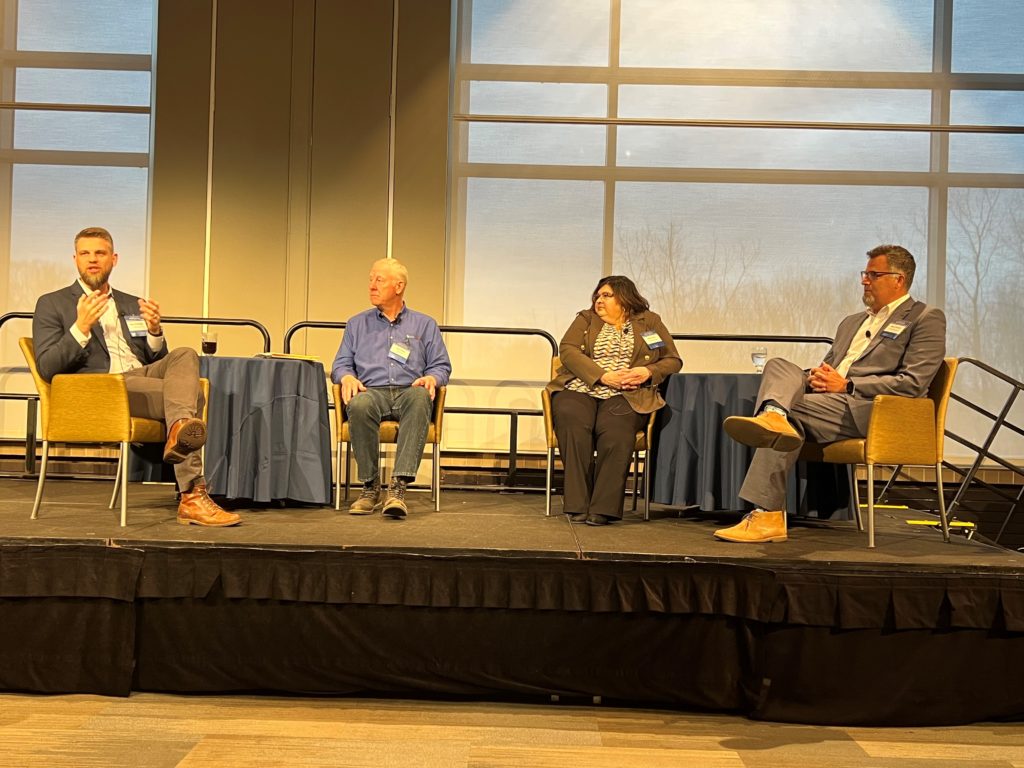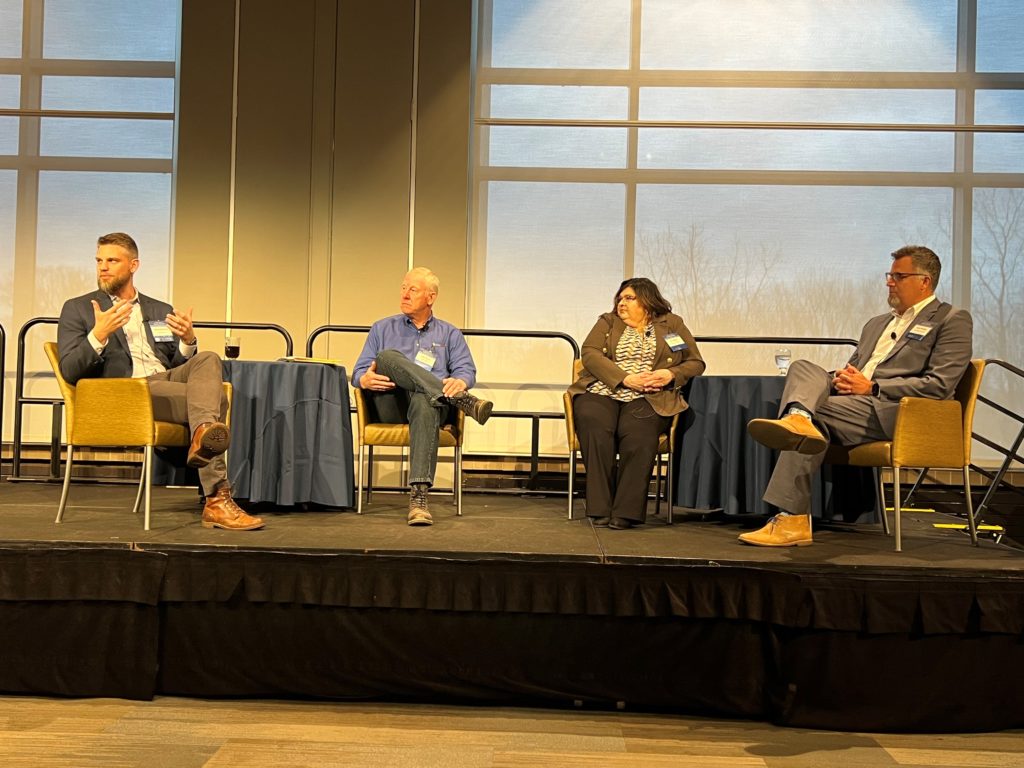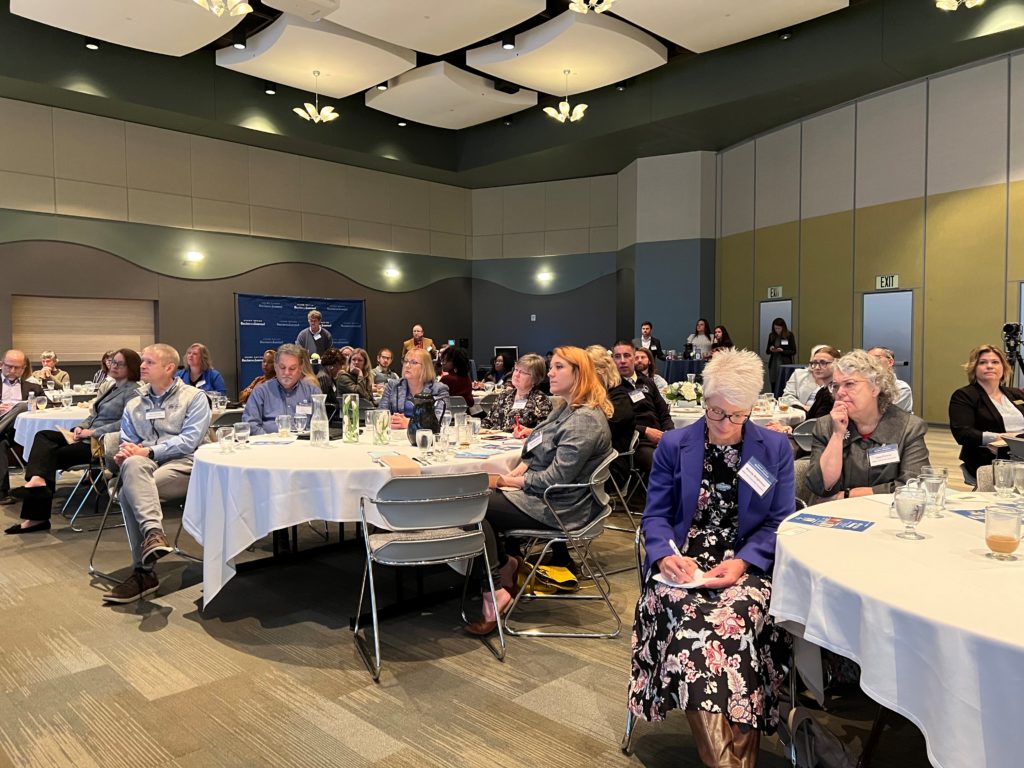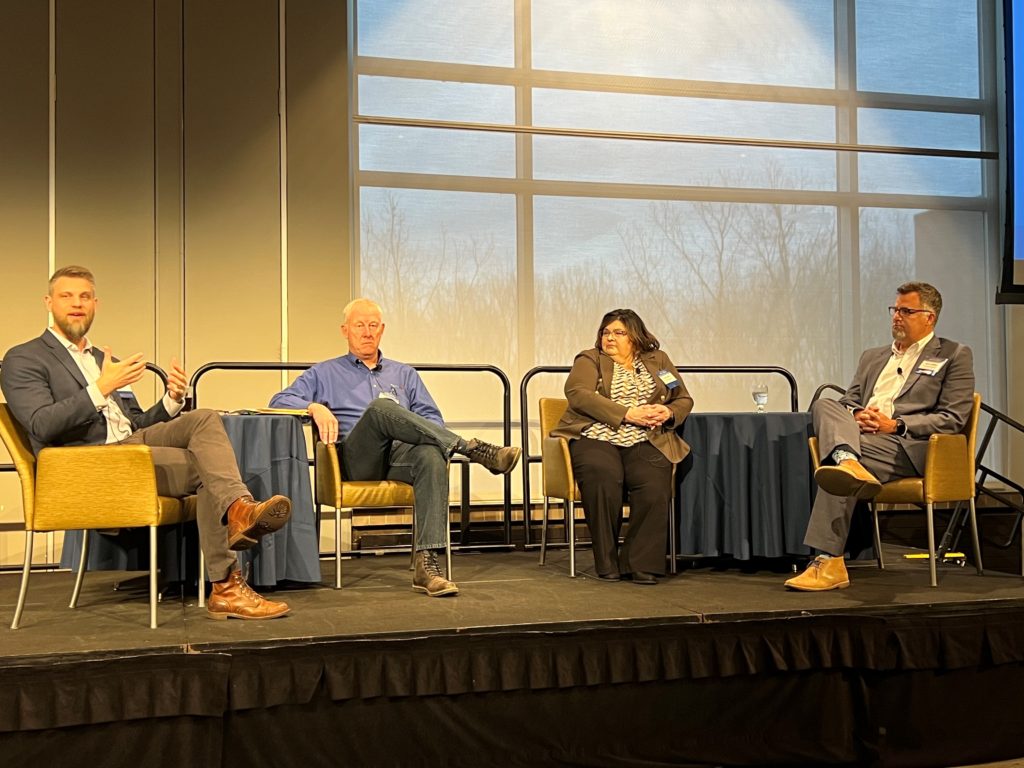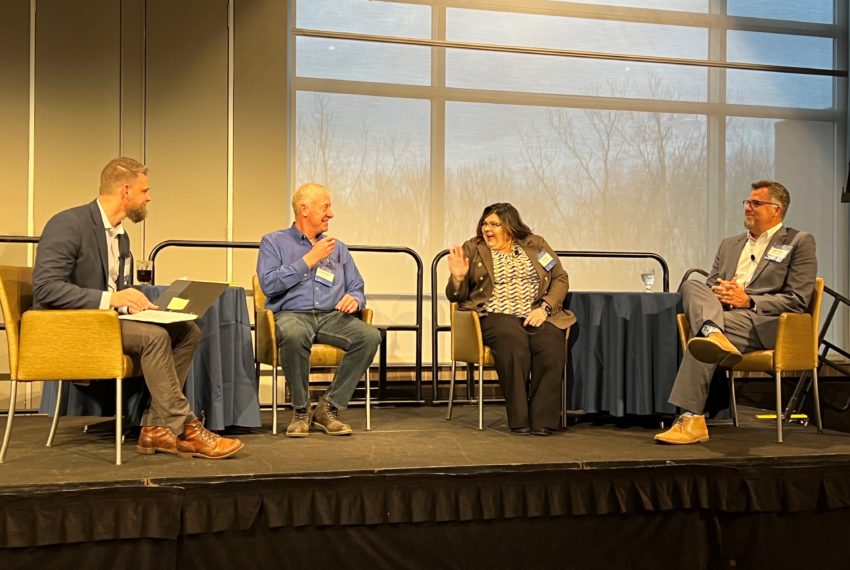
John Bitely addresses affordable housing as guest speaker in Grand Rapids Business Journal panel discussion
Sable Homes President John Bitely was invited to participate in the Grand Rapids Business Journal’s Breakfast Series panel discussion about affordable housing at Frederik Meijer Gardens on Wednesday, April 13. He was joined by Vera Beech, executive director of Community Rebuilders; Ryan VerWys, CEO ICCF Community Homes; and Ryan Kilpatrick, executive director of Housing Next, who acted as moderator for the event.
The four guest speakers all agreed that affordable housing is desperately needed for families living in Kent County and beyond. However, they’re seeing increased resistance for new housing in local communities. Bitely explained that efforts to attain this housing need are often defeated by those in the “Not In My Backyard” – NIMBY – camp.
“Nimbyism is alive and well,” Bitely told event attendees. “Only people who live next door (to new home developments) show up to meetings.”
“Opportunities to build attainable housing are thwarted by those who show up,” Kilpatrick added. “People in this community need to reach out to their local planning commission.”
Additionally, the shortage of available and affordable lots to build on is causing additional strains to create affordable housing in local communities, Bitely noted.
“Without lots and neighborhoods, it won’t happen,” he said.
During the event, VerWys shared that land trusts are a viable option for homeowners to purchase a home at an affordable price. That way, the buyer still gets the equity for the home, while selling to another family.
“A land trust protects the family and homeowner if there’s a downturn in the economy,” VerWys said. “It’s just an additional path to homeownership.”
The national average of families living in a home provided by the U.S. Department of Housing and Urban Development (HUD) is 22%, Beech explained. However, Kent County is nearly triple the national average at 60%. Thirty percent of families currently using HUD assistance programs are expected to be able to obtain housing on their own.
Beech told attendees that in order for families to afford a home, they need to have a decent income.
“Employment is important,” she said. “Families are in a crisis. Families in transition used to be 20 days, now it’s 60-70 days. We need to address the employment needs to help advance employment, and improve the ability to have food security and education.”

